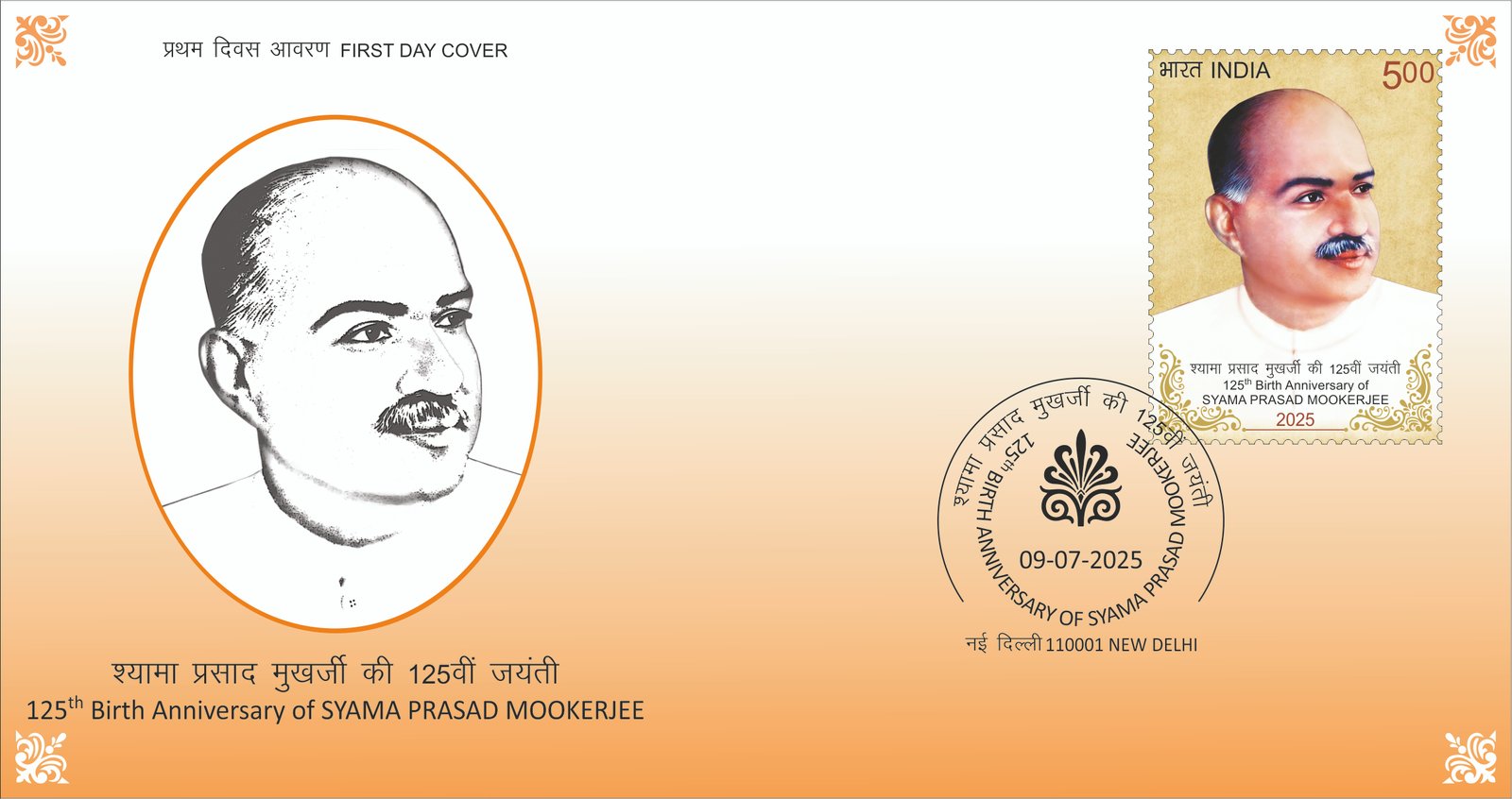Syama Prasad Mookerjee

Technical Data
| Date of Issue | July 9, 2025 |
|---|---|
| Denomination | Rs. 5 |
| Quantity | 202,800 |
| Printer | Security Printing Press, Hyderabad |
| Printing Process | Wet Offset |
| Colors | Multicolor |
| Credit (Designed By) | Ms. Nenu Gupta |
| Catalog Codes |
Colnect codes IN 2025.07.09-01 |
| Themes | Famous people | Independency Activists | Men |
Syama Prasad Mookerjee Stamp – Honouring a Visionary Leader
The Syama Prasad Mookerjee Stamp pays tribute to a great statesman, educationist, and freedom fighter whose life was dedicated to shaping modern India. Born on 6 July 1901 in Calcutta (now Kolkata), Mookerjee belonged to a distinguished Bengali family. His father, Sir Ashutosh Mookerjee, was a renowned educationist and Vice-Chancellor of the University of Calcutta.
Gifted with academic brilliance, Mookerjee studied at Presidency College and later pursued law at the University of Calcutta. In 1926, he joined Lincoln’s Inn, London, and became a member of the English Bar in 1927.
Early Political Journey
Inspired by the freedom movement led by Mahatma Gandhi, Syama Prasad Mookerjee dedicated himself to India’s independence. In the 1920s, he joined the Indian National Congress and actively worked with its youth wing. His political vision, however, was distinct—especially on issues concerning princely states and the structure of the Indian Union.
From 1943 to 1946, he served as President of the All India Hindu Mahasabha, and later represented West Bengal in the Constituent Assembly, where he played a key role in debates on minority rights, regional languages, and national unity.
Founder of Bharatiya Jana Sangh
On 21 October 1951, Mookerjee founded the Bharatiya Jana Sangh in Delhi, which later evolved into today’s Bharatiya Janata Party (BJP). He strongly opposed the special status granted to Jammu and Kashmir under Article 370, championing the slogan “One Nation, One Constitution.” His historic address in Jammu in 1952 reflected his deep belief in equality and national integration:
“I will either get you the Indian Constitution or sacrifice my life for it.”
Contributions to Education and Industry
Beyond politics, Mookerjee was a visionary educationist. He served as Vice-Chancellor of the University of Calcutta (1934–1938) and was on the Council of the Indian Institute of Science, Bengaluru (1935). He emphasized mother tongue education while promoting linguistic inclusivity, advocating for the inclusion of Tamil and Telugu in university curricula.
As Minister for Industry and Supply, he worked to strengthen small-scale industries. In Tamil Nadu, he supported handmade matchstick producers through tax relief, raw material access, and cooperative models—showcasing his commitment to inclusive development across India.
Philosophy and Social Vision
Mookerjee’s thoughts aligned with the philosophy later called Integral Humanism, which promoted development rooted in India’s cultural and spiritual values. At the 1936 convocation of Nagpur University, he emphasized that universities must be “living organs of national reconstruction,” blending material progress with spiritual depth.
His belief in justice, equality, and inclusion also reflected the spirit of Antyodaya—upliftment of the most marginalized. At the 1940 Agra University Convocation, he stressed:
“Equality of opportunity for all, genuine freedom for self-fulfilment, in which all men irrespective of caste or creed may share.”
Legacy and Commemoration
Syama Prasad Mookerjee’s luminous journey was cut short on 23 June 1953, leaving behind a legacy of courage, education, and nationalism. The Syama Prasad Mookerjee Stamp stands as a reminder of his contributions to India’s political, educational, and social life. For philatelists, it is more than just a collectible—it is a tribute to a visionary who shaped the foundations of modern India.
commemorative stamp
This commemorative stamp ensures that the story of Syama Prasad Mookerjee continues to inspire generations of Indians and stamp collectors worldwide.
First Day Cover


Leave a Comment
You must be logged in to post a comment.